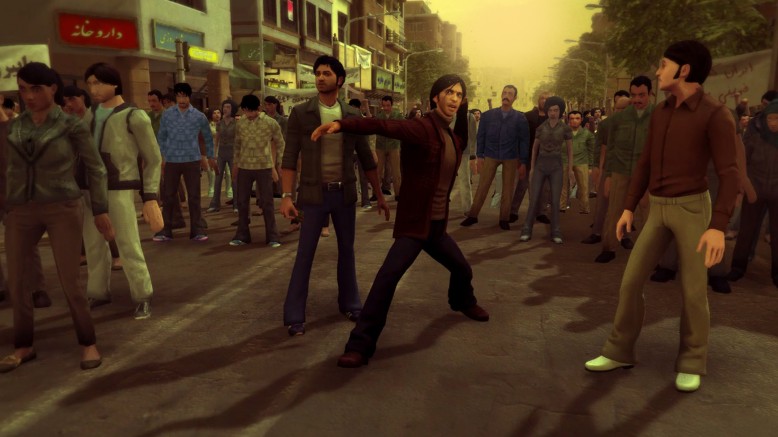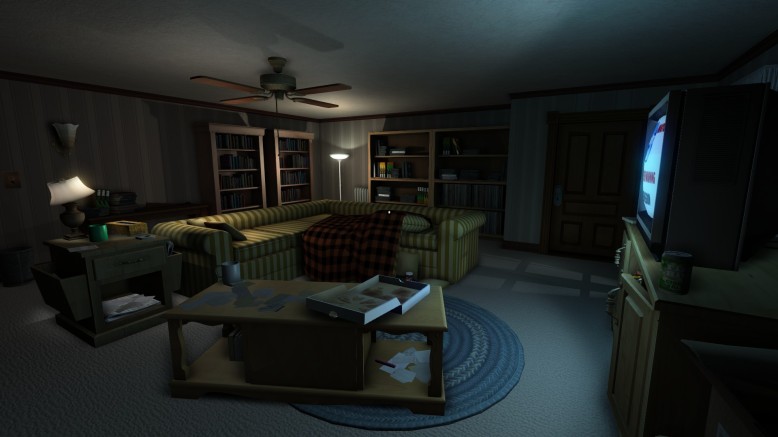Video games are often described as escapism. Artificial explorations designed to transport people from the occasional wreckage of reality. In the wake of Donald Trump’s election as President of the United States, pegging games as a welcome respite from staring into a political explosion whose scale made nukes blush is warranted. A cranium in the dirt mentality is a rational response. Still, it seems like there’s a disconnect between the concept of escapism and tapping into the power of interactivity. Interaction shapes experiences faster than a terraformer in a sci-fi novel. So why doesn’t that translate nearly enough to video games? Why do so many games shy away from confronting the present, from staring into our reality and translating that to audiences who would benefit from learning about the experiences of underrepresented groups. There is a prime opportunity in the medium to connect people, to help people shed their preconceived notions and better understand the reality of situations far outside their comfort zone. Where can we look?
Cart Life. Depression Quest. 1979 Revolution: Black Friday. That Dragon, Cancer. Dys4ia. Gone Home. Where simulation meets reality, we find an intersection of interactivity and foreign situations for much of the populous. Ascertaining artistic intent is like riding a bike on an ice rink, but it seems reasonable to propose some level of experiential expectations within each of these titles. Beyond educating others, when people see themselves in them it’s a powerful experience, something that feels wholly new to a medium whose comfort zone is more outer-spacial conflict than social unrest.
For an industry whose audience was reflected heroically onscreen for decades with chiseled bros saving the galaxy, this is a welcome change. That’s not worth re-hashing though. What’s worth delving into is whether these transporting experiences can have a chance to change people’s perspective who have no connection to the story onscreen. The opportunity to make a game about a Mexican immigrant fearing for their deportation or an African-American living in a predominantly white town are chances that I’m hopeful developers will tackle in ensuing years. In a post-GamerGate, President Trump world, creating interactive experiences rooted in social justice ideals feels more important than ever.
There’s a huge swath of this country that lives inside a bubble, wholly oblivious to the monstrous and minuscule injustices that happen everyday. I’ll fully admit I’ve lived inside that bubble too long. I grew up in a town where getting down to a 96% white community felt like progress. I went to a college that’s predominantly white, with a now-growing vocal component of minorities speaking out about changing the campus climate. Popping that bubble in one’s own reality is a necessity. Some people, like myself, probably don’t even really realize how sheltered they are. That’s on me to recognize that reality. But for countless others, they won’t recognize it. What could provide a transition, a way for people to recognize a modicum of the foreign experiences that should be common knowledge in this country?

Image courtesy of gamechurch.com
Video games may not be the answer, but they could be part of the solution. Escapism for escapism’s sake is a perfectly rational activity. There needs to be more opportunities for purposeful, experiential escapism though. If that seems paradoxical upon first glance, it’s probably because it isn’t very prevalent. The hope is that developers will start to implement those opportunities more in games. Imagining them being mainstream releases feels more improbable than a friendly blast-ended skrewt, but percolating the industry with even more of them in the coming years would be a welcome sign.
Just as Minecraft permeated STEM education in schools, why can’t immersive, unexplored social experiences occupy a similar space? Teachers show historical films all the time in an attempt to give students a rough approximation of a particular period. In today’s climate, it seems like modern experiences could be shared with students via an interactive medium. Education skews historical rather than current, potentially presuming kids are present enough to dive into the culture around them if they so choose. If most kids are like me though, they probably won’t. They’ll remain blind to it, too preoccupied with whether the local Subway is open past 9 (it wasn’t).
Making a video game title set in “the present” is a tricky wicket. Long development cycles can make pegging a modern vibe early on feel outdated by the time it releases. The cultures and experiences can still be rooted in modern tensions and tenor though, and they should still illustrate the poignant point developers are trying to get across. Additionally, historical fiction like 1979 Revolution: Black Friday are just as important in filling in experiential gaps for the majority of gamers, let alone society. Sometimes though, historical works can feel like a McDonald’s burger. Instantly gut-stuffing despite its creation stemming from a distant past, but its effect wears off within a couple hours. It starts to fade from memory (and my stomach), as history is wont to do.
What we need is an innovative gastropub, sporting recipes and meals that take those distant classics, learn from them, and adapt them into something new with modern cooking techniques. Even if they’re bite size, the amount of flavor, and culture packed into the tiniest of bites can be overwhelming and satisfying in ways people never considered before. Even the most fleeting indie game can pack a walloping emotional and educational heft.

Image courtesy of gonehome.game
It doesn’t need to be hyper-realized. David Cage takes normalized situations and imbues them with stilted writing that does nothing to illuminate messages we haven’t seen a million times over. Not to mention the lack of diversity in his games. What’s more relatable than that time a bunch of white folks randomly bump into each other’s lives by way of a portly, white serial killer. Same with GTA, whose extreme satire feels overwrought. Envisioning their next entry, after an election that already seemed like satire, is giving me ulcers.
There’s an opportunity for games to connect people in a way no other medium can. Virtual Reality is used for oddities at the moment, but imagine it used to transmit the experiences of less-privileged people. Imagine something akin to Cart Life in virtual reality. These games may best be created as short experiences, tight narratives that make their point and get out. Cart Life was already emotionally exhausting enough. That ignores some of the point though, that these experiences people may only be glimpsing aren’t just a flash in the pan. These are things that some people experience over their entire lives. Maybe a game will attempt that level of messaging, but it may be best to have players extrapolate that out themselves from the glimpse a game provides. I’ll never pretend to know what it’s like to be anything other than a white male, but I think games are primed to help plug an acute educational gap.
In a post-GamerGate, President Trump world, creating interactive experiences rooted in social justice ideals feels more important than ever.
Games rooted in that level of experiential education represent an idea of where games could take people in the ensuing years. It’s a place where a medium known for unplugging people from reality can start to plug people into the reality of our situation. What’s already been made can provide guideposts for the future. If someone’s more comfortable couching their experience in a fairy tale, blocky characters, or a cheesy James Patterson mystery, that’s great. Expressing yourself to an audience unfamiliar with your own experiences is the primary objective here. Leave the sidequests for another time. But if willing, utilize modernity to its greatest extent. Capture your mood, the prevailing culture around the country, your own perceptions of it, your friend’s perspective, and channel it directly into something that reflects the realities of the time.
Unknown experiences are everywhere, the product of people’s personal bubbles turning opaque rather than translucent. Bridging that gap is a necessity, and something a collective medium like video games can assist. Even if it feels like no one will play your game, particularly the people that may need to, don’t fret. Express. Send it to me, you’ll at least have one person who feels enlightened and satisfied by experiencing a new perspective.
Purposeful, experiential escapism still feels sparse, but it has the opportunity to become stitching for a country whose stuffing is sticking out. Games can be trivial, but they can also be meaningful. The latter feels more integral than ever.
